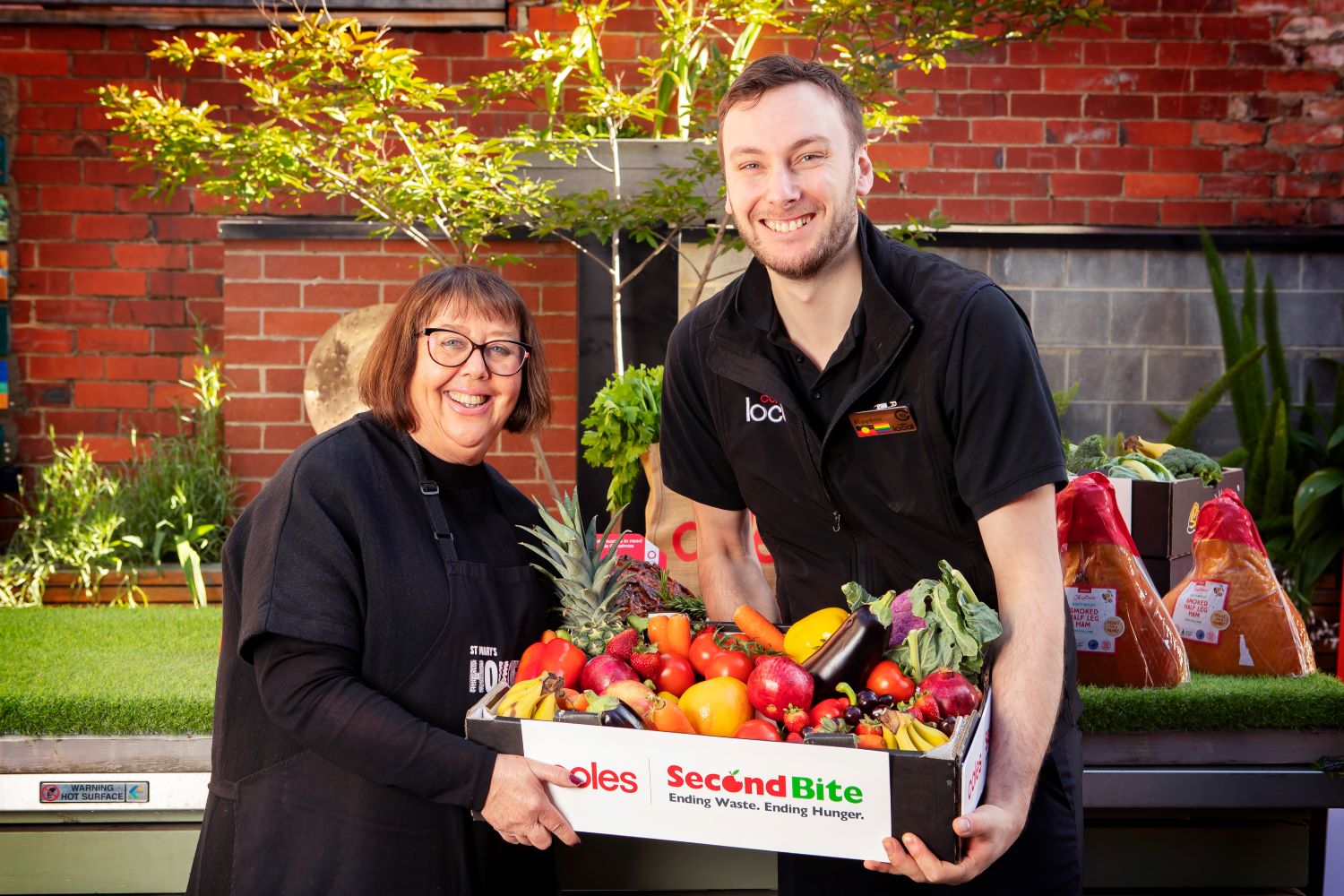With an increasing number of Australians turning to food relief services due to rising cost-of-living pressures, Coles today announced it had donated a record 40.1 million equivalent meals1 to people in need, up from 37.5 million meals the previous year.
A total of 20.3 million kilos of unsold, edible food, valued at $133 million, that might otherwise go to landfill, was provided to vulnerable Australians through community partners SecondBite and Foodbank in the last financial year.
As outlined in the retailer’s 2023 Sustainability Report released today, Coles has made good progress against its sustainability strategy, including the following highlights:
• 41.5% of women are in leadership roles2 against a target of 40% and a company-wide gender pay parity gap of less than one per cent,
• 3.5% of all team members3 identify as Aboriginal and/or Torres Strait Islander, up from 3.2% in FY22,
• 27.7% reduction in Scope 1 and 2 emissions from FY22; and a commitment to reduce Scope 3 emissions by working with 75% of suppliers by spend to support them to set emissions reduction targets by the end of FY27,
• Removed soft-plastic shopping bags from in-store and online which is estimated to remove approximately 230 million plastic bags from circulation each year4,
• A total of $40.7 million provided in community support5 to promote health outcomes and build resilience in our communities,
• $3.6 million awarded to small to medium sized businesses through the Coles Nurture Fund to help them innovate and grow.
Coles Chief Operations and Sustainability Officer Matt Swindells says Coles has an opportunity and a responsibility to make a difference in the community, and today’s report highlights some of the retailer’s major contributions and achievements against the key pillars of its sustainability strategy.
“We understand many of our customers are finding themselves in need of food relief services, and we’re pleased to have been able to provide the equivalent of 40.1 million meals to Aussies in need in the last financial year. Not only does this support the community, but it also helps to address the environmental impacts associated with food waste,” said Matt.
“We’ve also made strong progress when it comes to gender equality, with 41.5% of women now holding leadership positions and a company-wide gender pay parity gap of less than one per cent,” he added.
“Creating a safe and inclusive workplace for our more than 120,000 team members is also a key priority and that’s been reflected in our decision to be a presenting partner of Sydney WorldPride and in our increasing number of Aboriginal and Torres Strait Islander team members, now at 3.5%,” Matt said.
The report also details Coles’ progress against sustainability topics that customers, investors and the community believe to be important and ones that they consider Coles has the greatest ability to impact, including climate change, food waste, plastic and packaging and circular economy.
During the year, Coles announced new renewable electricity agreements that aim to bring the retailer closer to achieving its target of 100% renewable electricity by the end of FY25, and entered a three-year agreement with Origin that will see the installation of 20 megawatts of solar panels on top of 100 stores, with batteries to be installed at one third of Coles stores to capture and store excess renewable electricity generated on-site.
Today Coles also released its 2023 Modern Slavery Statement which outlines its approach to identifying and managing modern slavery risks in its operations and supply chain.
The 2023 statement focuses on Coles’ strategy to identify, address and remediate the risk of modern slavery within its operations and supply chain. Key areas of focus include how Coles might integrate modern slavery risk management across its business, the development of proactive and retail specific responses to modern slavery, the importance of partnerships with suppliers and other key stakeholders in combating modern slavery and increasing transparency about the challenges and lessons learned.
Reports are available to read at









